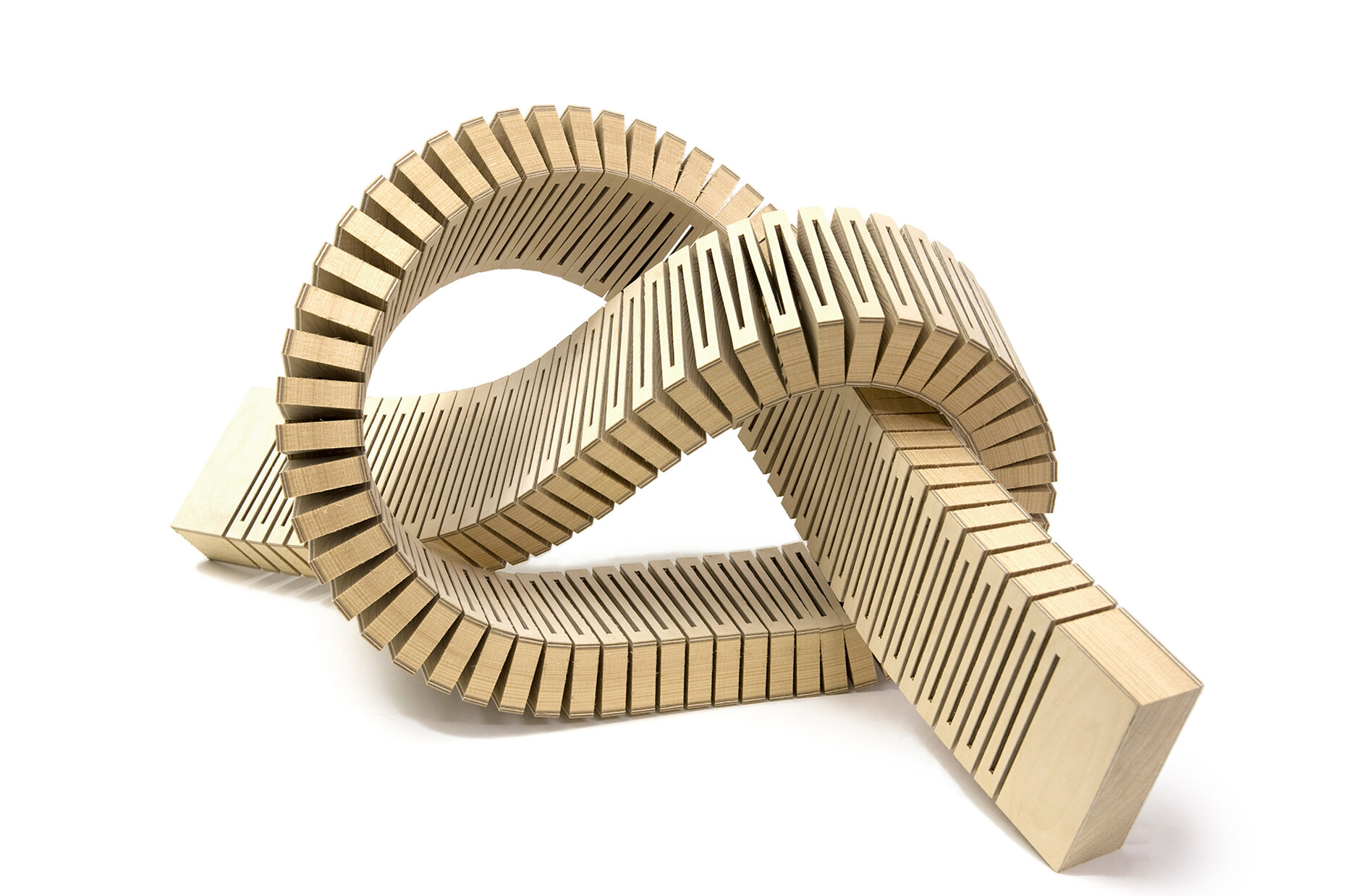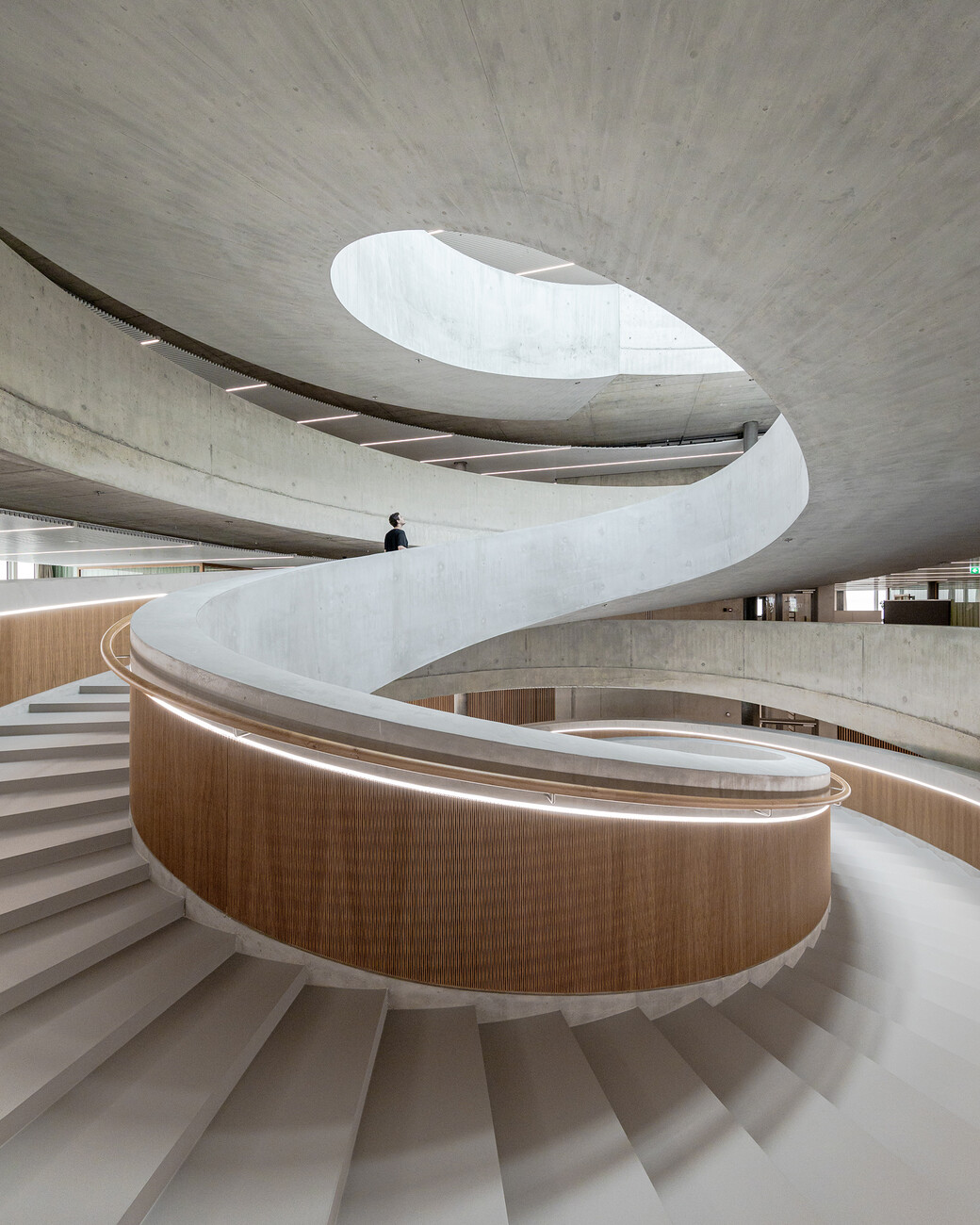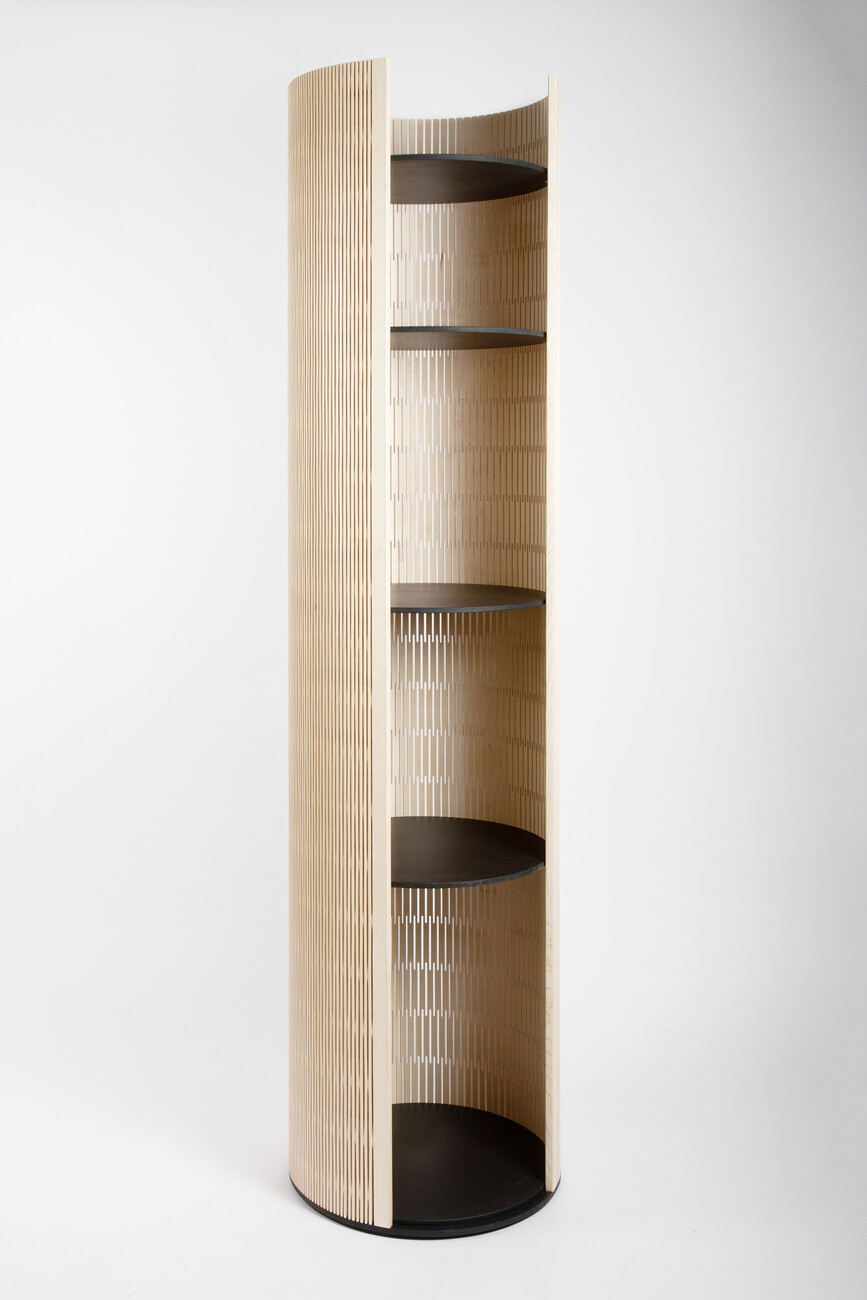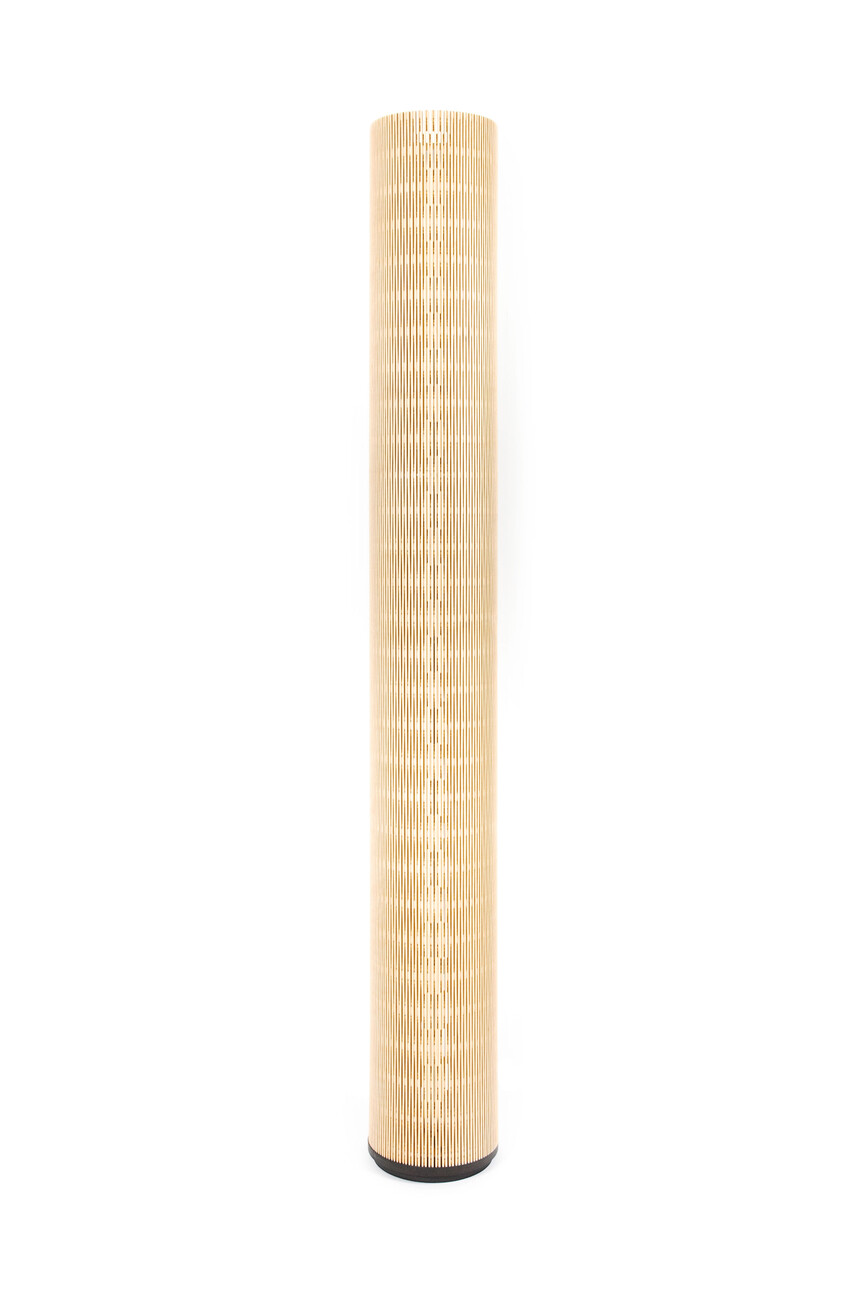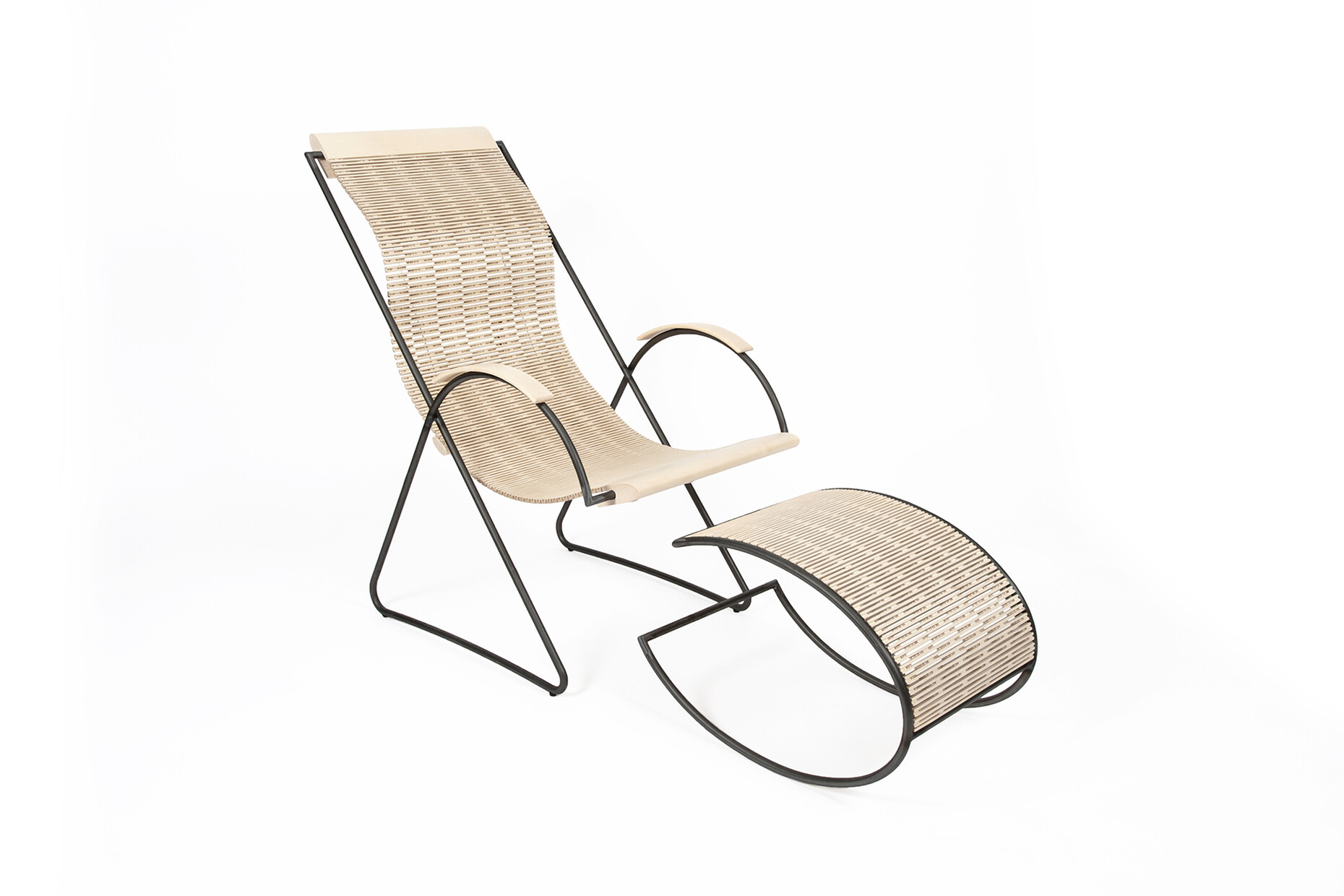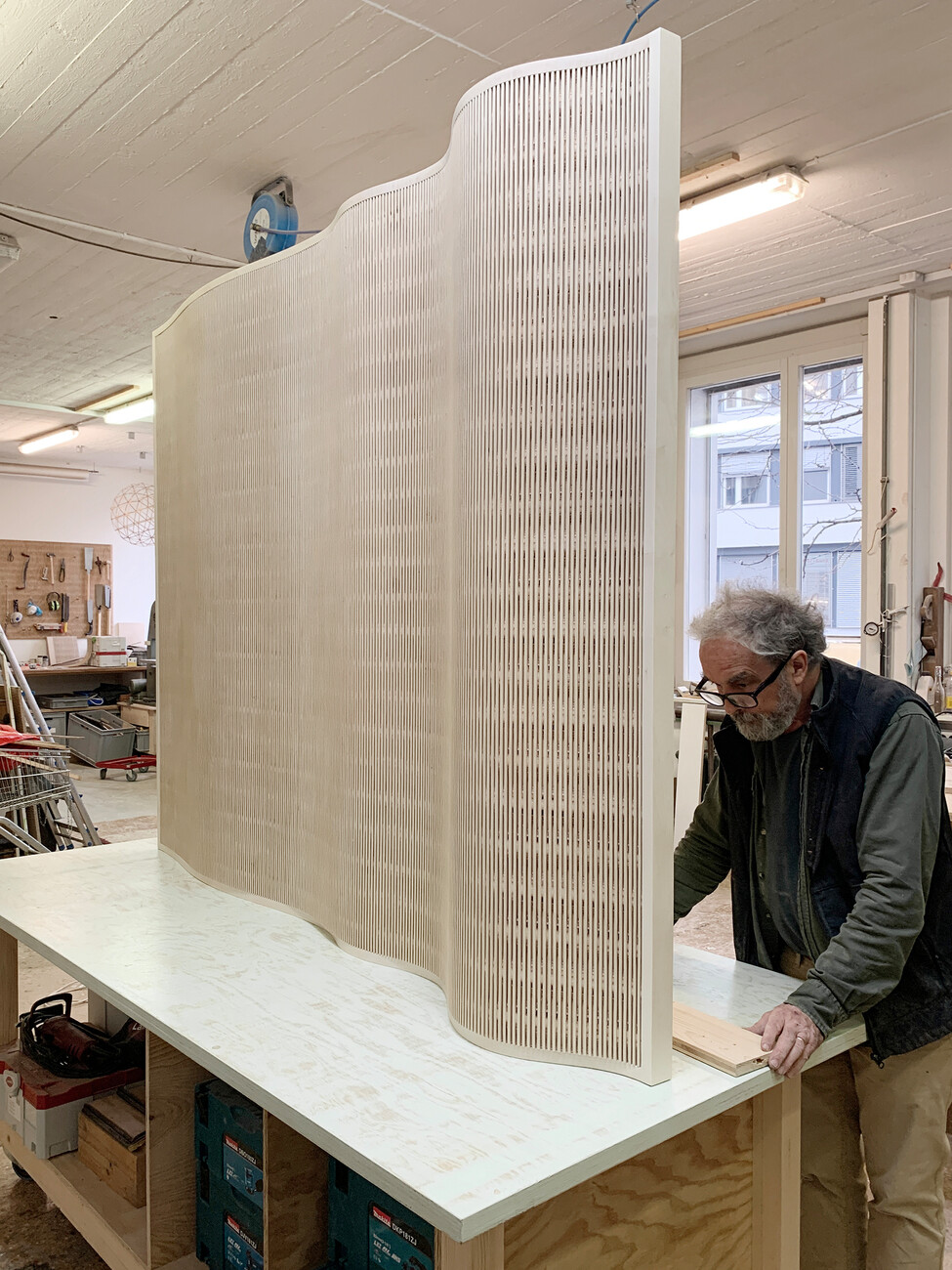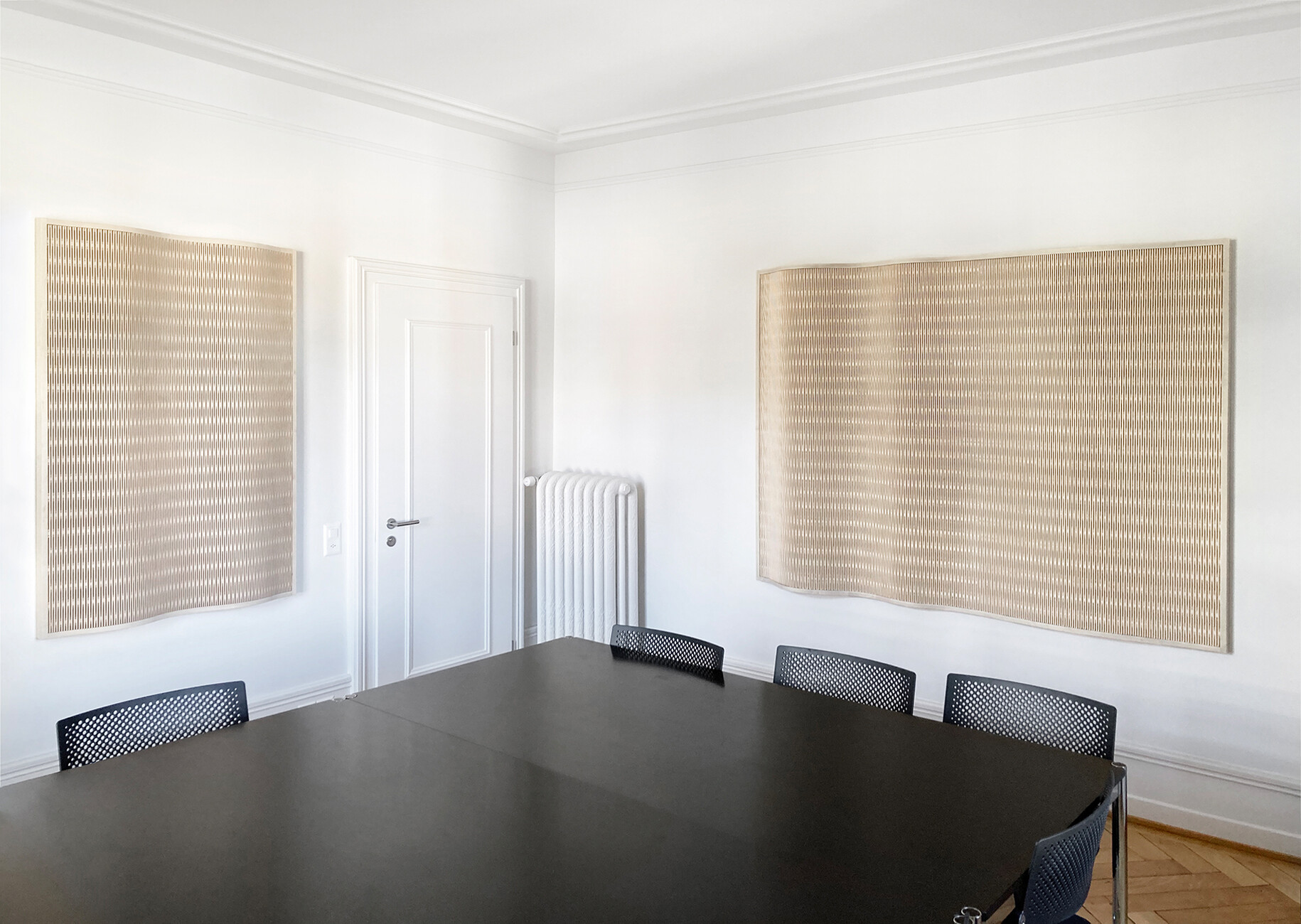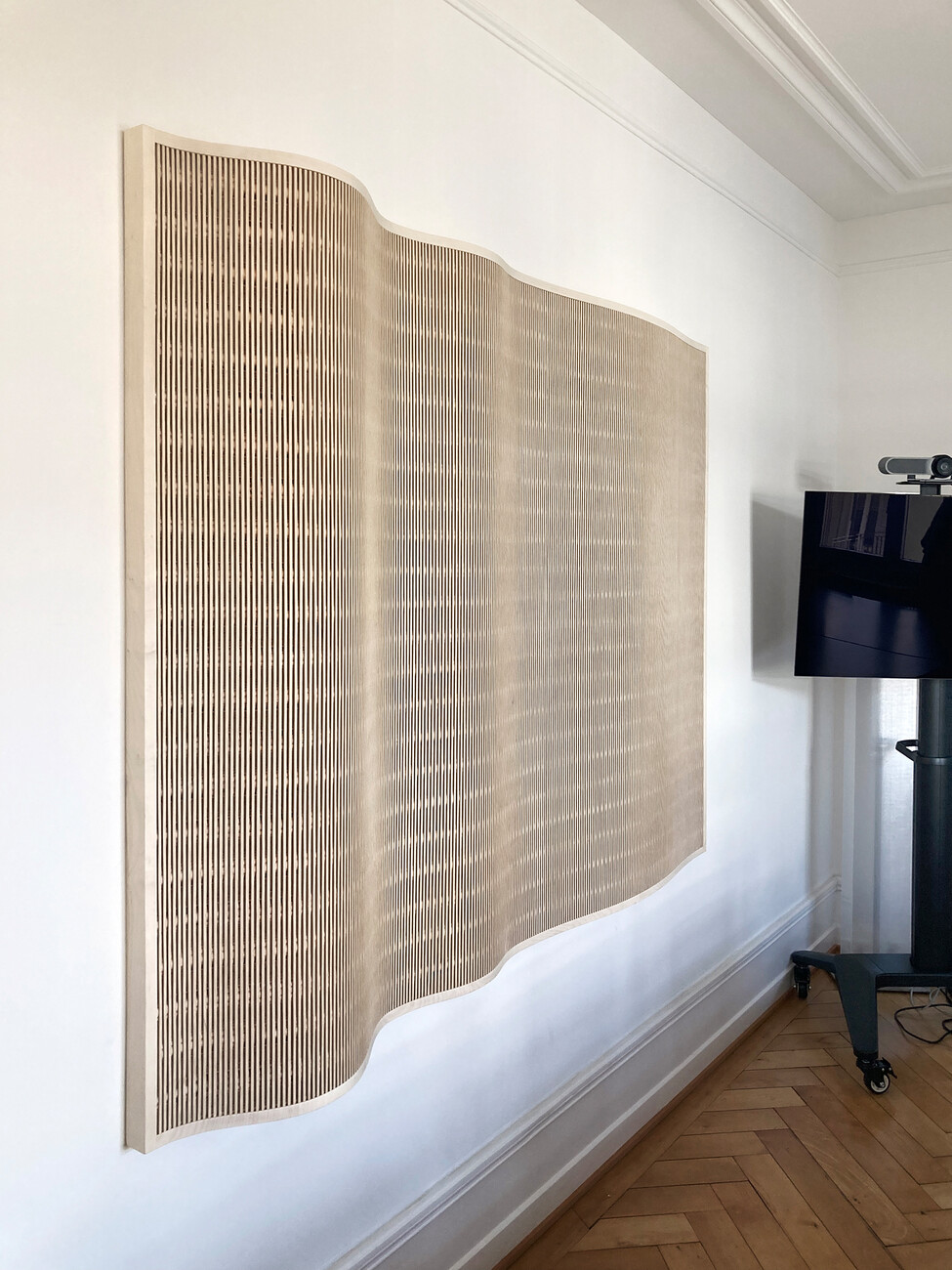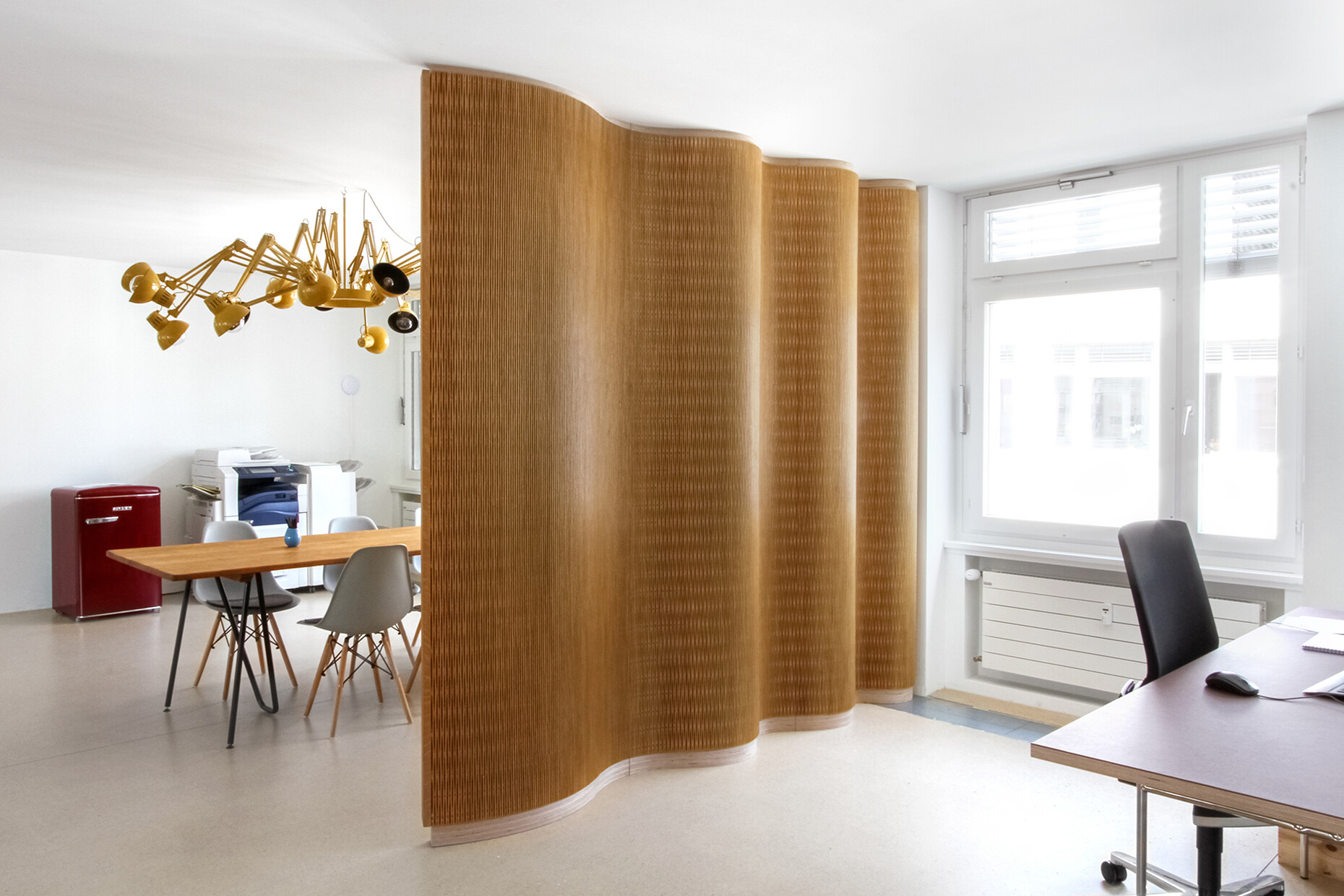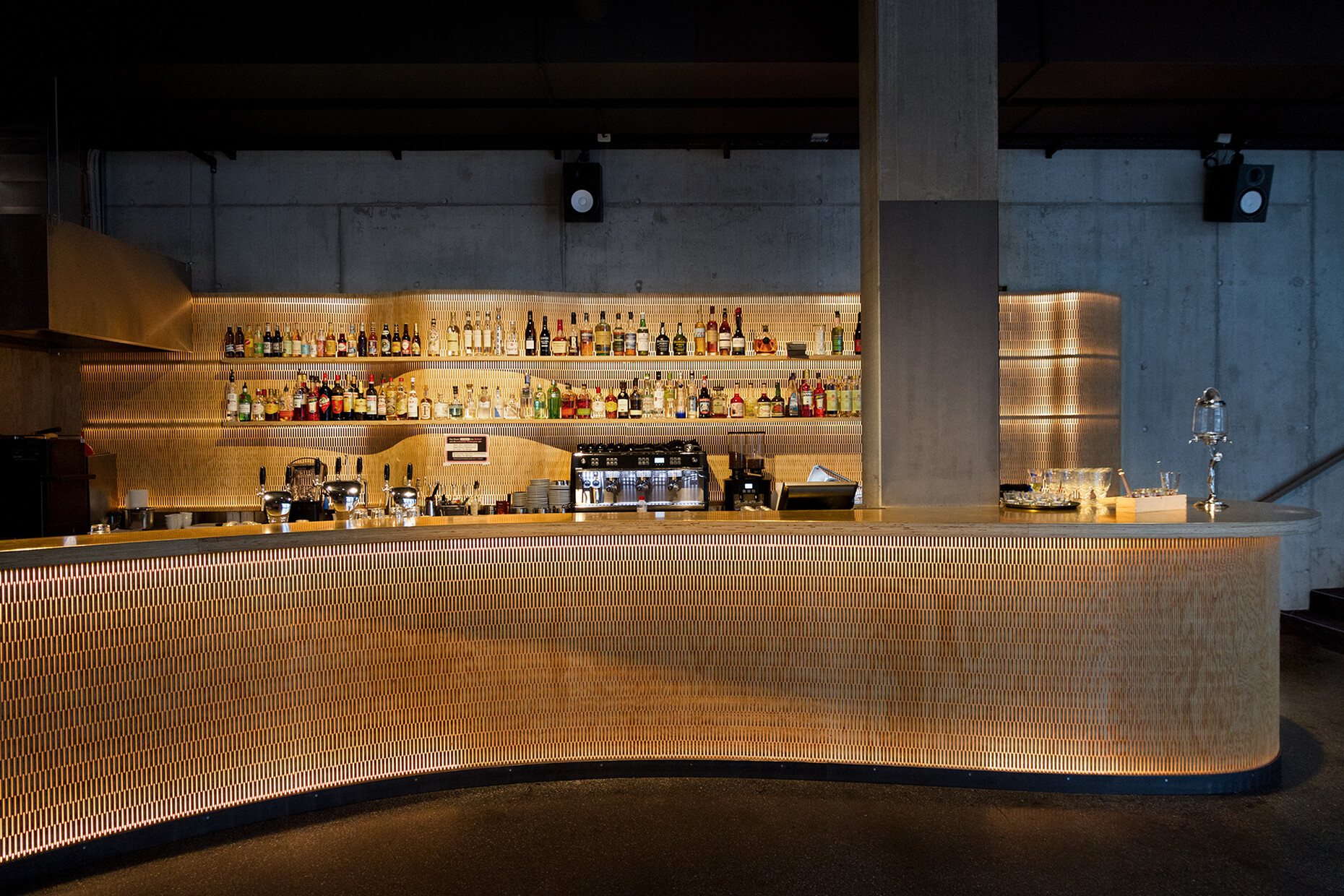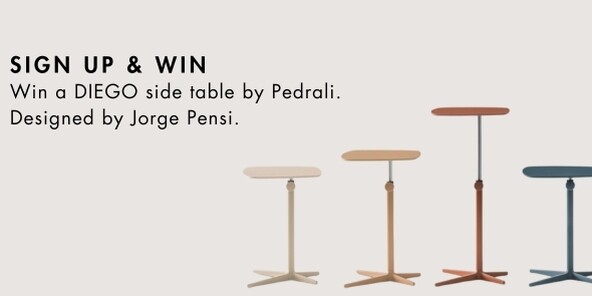Moving bars
Challenges often lead to the best ideas. Serge Lunin was working as a lecturer in the Department of Design with Wood at the Zurich University of the Arts when, in 2006, a student wanted to realise a couch in bent wood. "It wasn't possible with the conventional wood-bending techniques using steam or a layered glue," he recalls. But the trained carpenter came up with another idea: he cut the wood offset on both sides so that the once solid slats became movable. "Through experimentation, we succeeded in capturing this sequence of cuts on a surface," he says. In this way, a solid wood panel becomes malleable like a rubber mat. Serge Lunin patented the idea and subsequently founded the company Dukta, derived from the term ductility, with a business partner. This refers to the property of a material to deform under heavy load before it breaks. When Lunin's founding partner moved to Denmark in 2015, son Pablo joined the company. The industrial designer has since professionalised and digitised Dukta's design processes and marketing. Together with his father, he built up an international network of licence partners. Wood processing companies in Germany, Austria, Holland, Spain and the USA produce the movable wooden elements with the help of CNC milling machines and thus serve the local markets. The advantage over exporting from Switzerland: they can produce in larger margins, their manufacturing costs are lower and transport distances are shorter. At Dukta's headquarters in the west of Zurich, on the other hand, much is still done by hand. The small family business has rented office space in the former administration building of a toy factory and a workshop in a cooperative with other creative people. There, it works on prototypes and continues to develop the incision process.
Guided sound
"Our focus is clearly on interior design," says Pablo Lunin. In addition to the pliability and appearance, it is especially the acoustic properties that should be of interest to interior designers. Wave-shaped panels already float on church ceilings or cover the walls in concert halls. For open-plan offices, prefabricated cassettes with a textile fleece on the back are also suitable, which are wall decoration and sound insulation in one. "The special thing is that the material can develop its effect both in a historical context and in a modern context," says Serge Lunin, pointing to an element made of Swiss stone pine with a strong grain. "I could imagine this working well on a plain concrete wall, for example." In addition to the acoustics, the translucence is another appealing property of the flexible wood. It came into its own in Zurich's Kosmos cultural centre, among other places, where the backlit wood panelling bathed the room in a warm light. Anyone who wants to bring this effect home can also order table, pendant and floor lamps from Dukta in the small online shop. The furniture portfolio also includes wall panels with narrow shelves made of MDF and the "Tschair" lounge chair, which Dukta developed together with the architect Elias Leimbacher. In addition to new areas of application for their material, Pablo and Serge Lunin are currently looking for ways to produce it more cheaply. Another milestone in the company's history is the final recognition by the European Patent Office. Pablo Lunin says: "For us, the definitive granting of the European patent is a decisive factor for longer-term cooperation with our foreign licensing partners."
